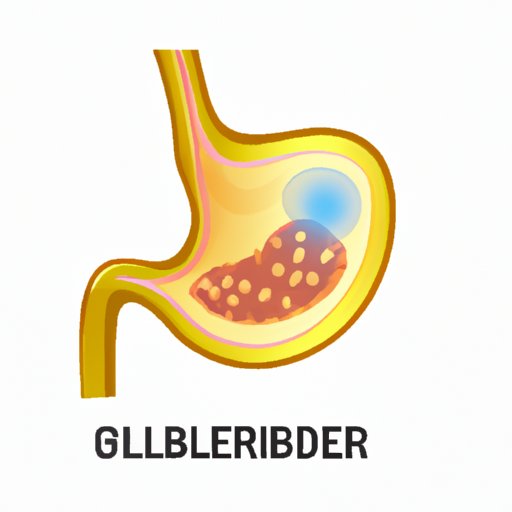
Do You Need a Gallbladder?
The gallbladder is a small organ that sits beneath the liver, responsible for storing and releasing bile into the small intestine to aid in digestion. While it may not seem like a particularly important part of the body, the gallbladder plays a crucial role in our overall health. However, there are circumstances in which it may need to be removed, raising the question: do you need a gallbladder? In this article, we’ll explore the pros and cons of living without a gallbladder and take a closer look at the function of this little-known organ.
The Pros and Cons of Living Without a Gallbladder
One of the benefits of having your gallbladder removed is that it eliminates the possibility of developing certain gallbladder-related health issues, such as cholecystitis (inflammation of the gallbladder) and gallstones. These conditions can cause severe pain in the abdomen, nausea, and vomiting, among other symptoms. However, the downside to living without a gallbladder is that its removal can impact digestive health, leading to issues such as bloating, diarrhea, and even weight gain.
Understanding How Your Gallbladder Works
As mentioned earlier, the gallbladder’s primary function is to store and release bile into the small intestine. Bile is a fluid that aids in the digestion of fats, making it an essential component of the digestive process. It’s produced by the liver and stored in the gallbladder until it’s needed to break down food in the small intestine. In this way, the gallbladder acts as a regulator, ensuring that the correct amount of bile is released to digest the food we consume.
Gallbladder Removal Surgery: What You Need to Know
If you’re facing gallbladder removal surgery (cholecystectomy), there are a few things you should know. First, you’ll need to prepare yourself both physically and mentally for the procedure. This may include abstaining from food and drink for a certain period beforehand and making arrangements for post-operative care. During the procedure itself, you’ll typically be under general anesthesia, so you won’t feel any pain or discomfort. Afterwards, you’ll need to allow time for your body to recover, which may include several days in the hospital and several more weeks of taking it easy as your body heals.
5 Signs That You May Need to Have Your Gallbladder Removed
It’s not uncommon for people to experience gallbladder-related issues at some point in their lives. If you’re experiencing any of the following symptoms, it may be a sign that you need to consider gallbladder removal surgery:
- Severe abdominal pain that lasts for several hours
- Nausea and vomiting
- Bloating and gas
- Indigestion and heartburn
- Clay-colored stools
Living Without a Gallbladder: One Person’s Experience
To get a better sense of what it’s like to live without a gallbladder, we spoke with Jane, a woman who recently underwent cholecystectomy. “At first, it was challenging,” she admits. “I had to be careful about what I ate, and I experienced a lot of bloating and diarrhea. But over time, I’ve learned to manage it better. I take digestive enzymes with my meals, and I’ve made some dietary changes that have helped.” Jane emphasizes that everyone’s experience will be different, but it’s important to be patient and persistent in finding what works for you.
How to Support Your Digestive Health Without a Gallbladder
If you’re living without a gallbladder, there are certain steps you can take to support your digestive health. These include:
- Eating smaller, more frequent meals instead of large meals
- Avoiding high-fat foods, which can be harder to digest
- Taking digestive enzyme supplements with meals to aid in digestion
- Incorporating fiber-rich foods into your diet to promote regularity
- Staying hydrated to help flush out toxins and maintain digestive health
Conclusion
In conclusion, the question of whether or not you need a gallbladder largely depends on individual circumstances. While removal may be necessary to treat certain conditions, it’s important to be aware of the potential impact on digestive health. If you’re considering gallbladder removal or have already undergone the procedure, it’s essential to take steps to support your digestive health and maintain overall wellness.





